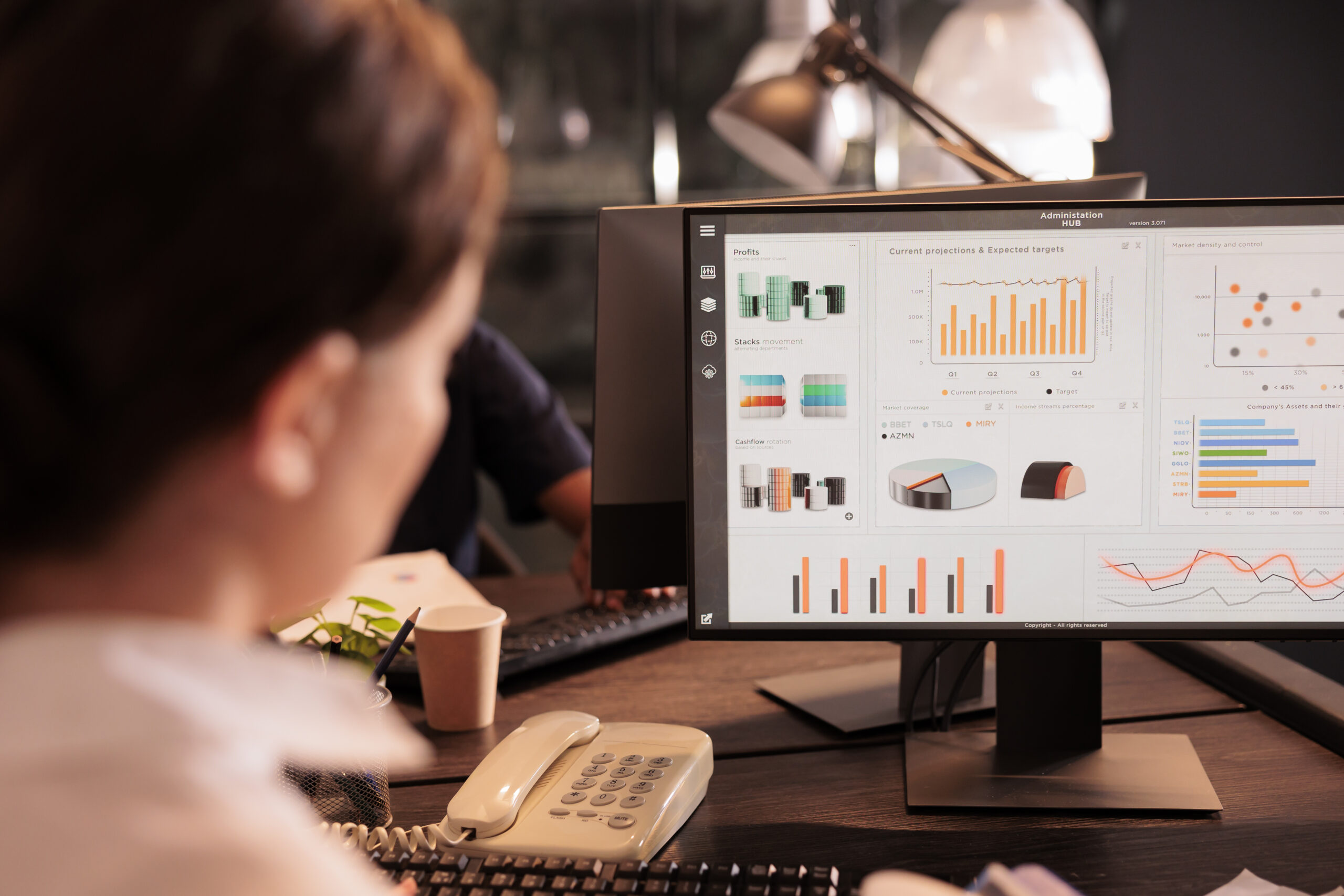In today’s digital landscape, businesses are flooded with data—customer behavior, financial performance, marketing metrics, inventory levels, and more. But raw data alone doesn’t drive decisions. What businesses need is a way to interpret and act on that data in real-time. That’s where custom dashboards come into play.
Custom dashboards are a powerful feature in custom software solutions, turning complex datasets into accessible, visual insights. In this post, we’ll break down what custom dashboards are, how they differ from off-the-shelf tools, and why they’re often a critical component of tailored software solutions for modern businesses.
What Is a Custom Dashboard?
A custom dashboard is a visual interface built specifically for your business that displays real-time data, key performance indicators (KPIs), and actionable insights. Unlike generic dashboard tools that use preset templates or metrics, custom dashboards are designed around your exact workflows, roles, and data sources.
They can be as simple as a single-user sales tracker or as complex as a real-time enterprise operations command center. The key is that they’re built specifically for your team’s goals and needs.
Key features often include:
- Data visualizations (charts, graphs, maps, etc.)
- Interactive filters and drill-downs
- Role-based access and customization
- Integration with internal systems, CRMs, ERPs, or APIs
- Real-time or near-real-time data updates
Why Off-the-Shelf Dashboards Fall Short
Popular business intelligence (BI) platforms like Tableau, Power BI, or Google Data Studio offer great functionality—but they’re not always the best fit for custom workflows or niche industries. These tools often require workarounds, manual exports, or additional licensing fees to get what you really need.
Limitations of generic dashboards include:
- Limited integration with custom databases or legacy systems
- Generic UI that may not align with your business processes
- Overly complex or underpowered depending on your needs
- Higher costs for scaling, training, or modifying reports
If your team finds itself exporting data to Excel or manually building reports to supplement a third-party dashboard, a custom-built solution might offer better efficiency and alignment.
How Custom Dashboards Fit Into Custom Software Solutions
When building custom software—whether it’s for inventory management, customer portals, logistics tracking, or performance analytics—dashboards serve as the front line for business insight. Rather than being a separate reporting tool, dashboards are embedded directly into the systems your team uses daily.
Here’s how they integrate into broader software solutions:
1. Centralized Visibility
Custom dashboards bring data from multiple systems into a single, user-friendly view. This allows stakeholders to track KPIs without logging into several different platforms or waiting for weekly reports.
2. Real-Time Decision Making
With live updates and automation, users can spot trends, identify bottlenecks, and take action instantly. This is especially useful for operations, logistics, and customer service teams that need agility.
3. Tailored for Users
Executives need high-level overviews, while frontline employees may need tactical data. Custom dashboards can be built with role-specific access, showing the right data to the right people.
4. Improved Workflow Efficiency
Dashboards can trigger alerts, generate automated insights, and reduce time spent digging through reports. When paired with automation or AI, they can even recommend next steps.
5. Scalable with Your Business
As your business grows or pivots, a custom dashboard can evolve with it—no need to wait on a vendor to update functionality or struggle with limited licensing options.
Examples of Use Cases Across Industries
Custom dashboards aren’t one-size-fits-all—they’re as diverse as the businesses they serve. Here are just a few ways they’re being used in real-world applications:
- Retail & EcommerceReal-time sales and inventory dashboards with filters for location, category, and seasonality
- HealthcarePatient volume tracking, appointment stats, and compliance dashboards that integrate with EHR systems
- ManufacturingOperational dashboards for monitoring machine uptime, defects per batch, and supply chain health
- Marketing AgenciesCampaign performance dashboards tied to Google Ads, Meta, and email platforms with real-time ROI tracking
- FinanceCash flow forecasting, budget variance, and risk analytics dashboards linked to current accounting systems
Benefits of Building a Custom Dashboard
If you’re considering integrating dashboards into your custom software, here are the key benefits that make it worth the investment:
- Contextual insights directly embedded in your platform
- Custom visuals that match your branding and logic
- Seamless integration with your existing tech stack
- Greater data security and compliance compared to third-party tools
- Lower long-term costs by avoiding ongoing BI software licensing
When Is the Right Time to Build One?
Not every business needs a custom dashboard immediately—but as your data complexity grows, so does the value of visualization.
You might be ready if:
- You’re manually compiling reports from multiple systems
- You’re outgrowing Excel or basic reporting tools
- You need team-wide visibility and collaboration around metrics
- You want more control over how your data is visualized, filtered, and shared
- You’re building or revamping custom software and want analytics built-in from the ground up
Choosing the Right Development Partner
A good custom software team will not only understand how to build dashboards—they’ll know how to align them with your business logic, goals, and future scalability. Look for a development partner that offers:
- Expertise in data visualization frameworks and tools
- Experience integrating APIs, databases, and third-party systems
- User-centric design to make dashboards simple, not overwhelming
- Long-term support to evolve dashboards as your needs change
From Static Reports to Strategic Insights
Custom dashboards aren’t just pretty visuals—they’re business tools that can drive smarter decisions, save time, and unlock growth. When built as part of a custom software solution, they become deeply embedded into your day-to-day operations, allowing your team to act on data—not just look at it.
If your business is ready to move beyond generic BI tools or manual reporting, custom dashboards could be the next logical step in your digital transformation journey.



